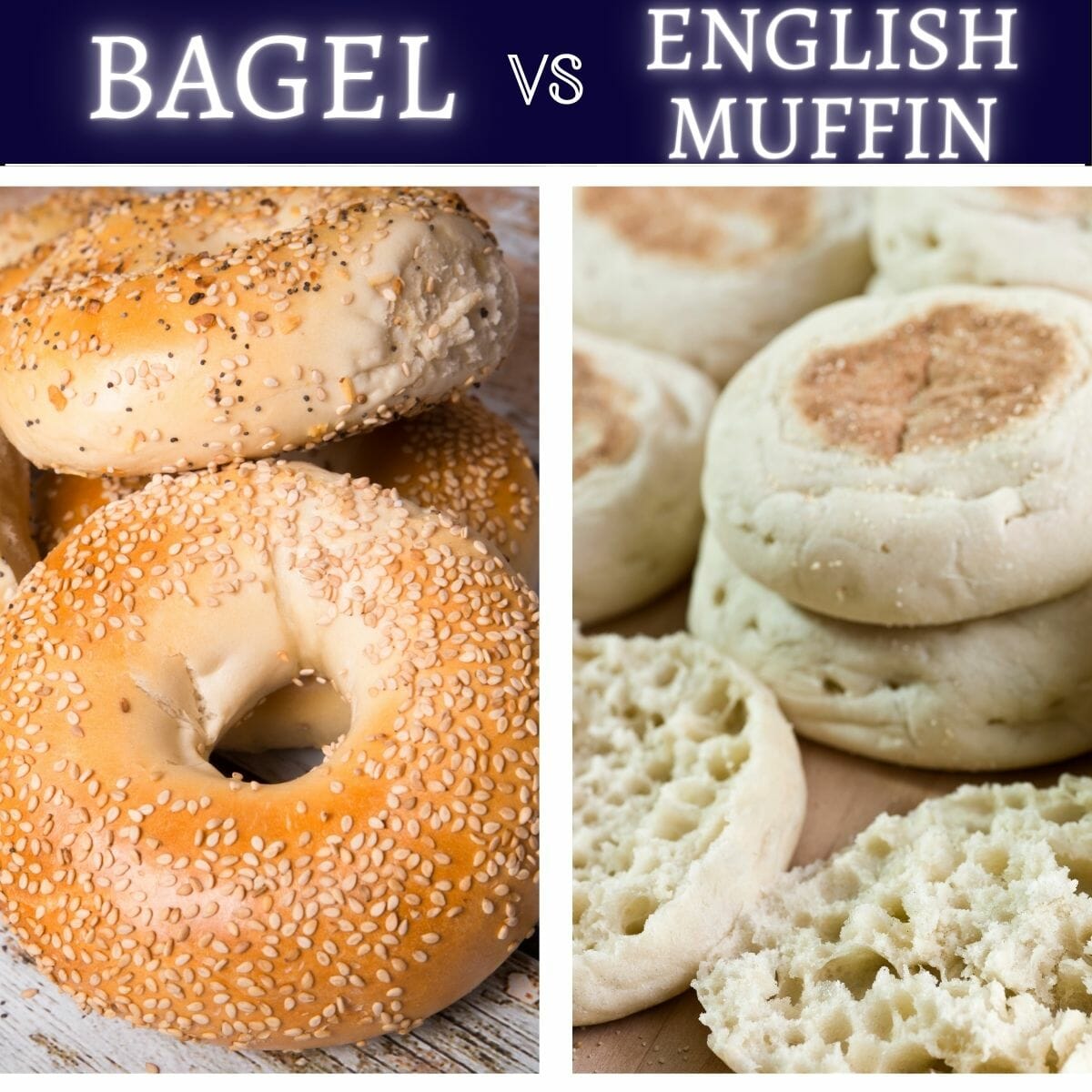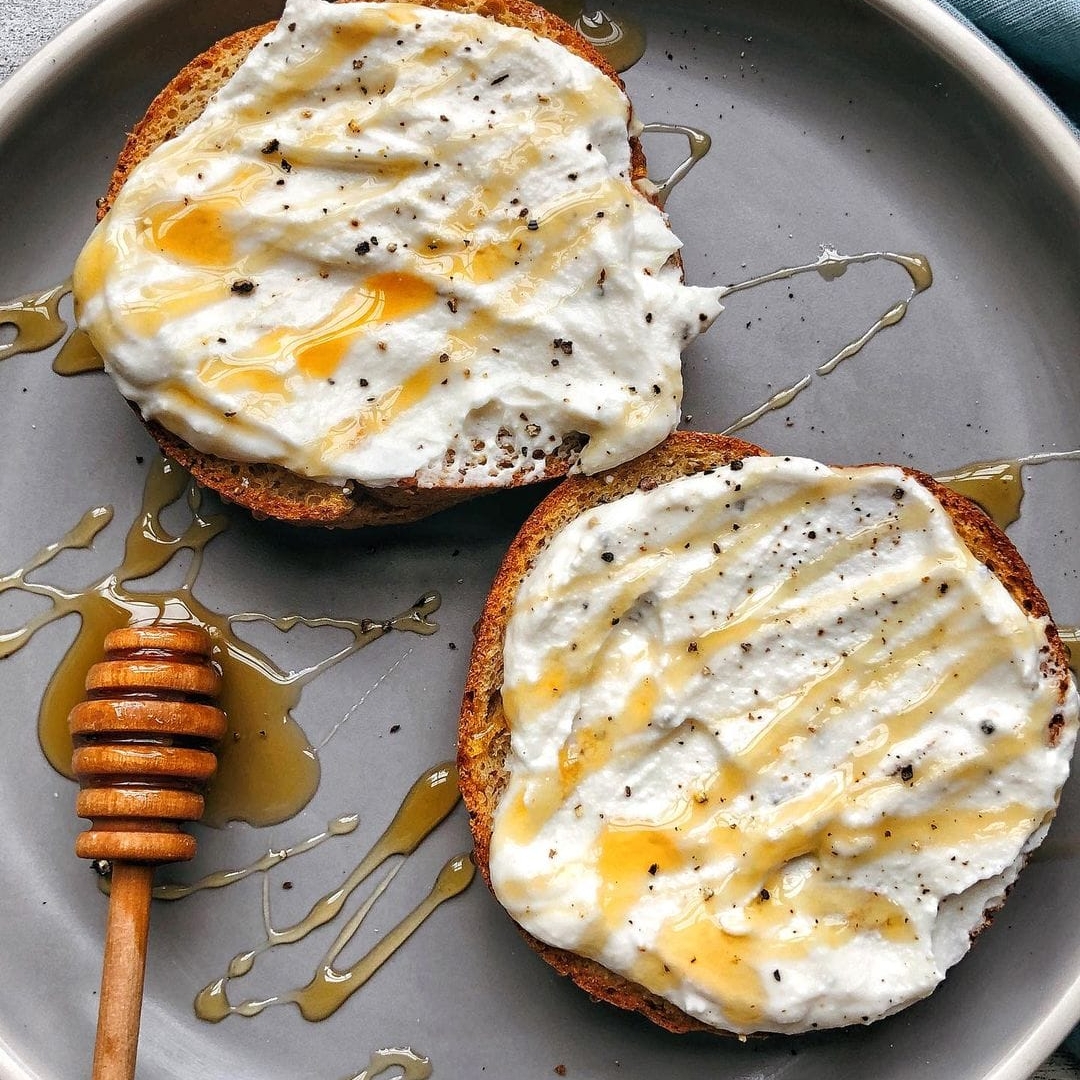When you go to dive into a delicious breakfast, you may stop yourself when it comes to choosing between a bagel and an English muffin. Yes, they both have carbs. They both contain calories. But is English muffin or bagel healthier? If you are concerned about your health, you will want to learn about the differences between these two breakfast options. Today, we will share what we know about which is the healthier option.
Table of Contents
Is English Muffin or Bagel Healthier?
You may know the obvious difference between bagels and English muffins. The difference is bagels have a hole in the center. English muffins do not.
There are other differences you should be aware of though. And one of those differences includes the nutritional values of each one.
History of English Muffins
We’ve told you about famous bread hailing from the United Kingdom before, with our introduction to Irish Soda Bread. It shouldn’t come as a surprise that English muffins were first made in England during the 10th century. It is thought that these breakfast muffins were first made in Wales.

English muffins didn’t arrive in the US until the 19th century. At that time, Samuel Bath Thomas sold his English muffins in New York.
English muffins are made using flour, yeast, water, sugar, salt, milk, butter, and eggs. It is that special dough that creates the ‘nooks and crannies’ in the muffins. Those nooks and crannies are what soaks in the butter or other toppings you add to your English muffins.
Aren’t bagels made similarly? So is English muffin or bagel healthier? To find out, we will need to take a deeper dive into the history of bagels.
History of Bagels

Similar to latkes, bagels were first made in Poland back in the 1600s. These breakfast treats also arrived in the US in the 19th century. Jewish immigrants from Poland started making them here in the US.
In the beginning, only Jewish communities ate bagels. However, once the bagel-making machine was invented in the 1960s, bagels started popping up everywhere.
When bagels were first sold, you could purchase them from a person on the streets. The bagels were normally hung from strings or stacked up on poles. That seems to be the reason why there is a hole in the middle.

Bagels are made using flour, salt, water, malt, and yeast. The bagels are shaped like rings before boiling and baking. They are crispy on the outside and chewy on the inside.
Nutritional Differences Between English Muffins and Bagels
English Muffins
- 24 mg Magnesium
- 3.53 g Sugar
- 92 mg Phosphorus
- 109 mg Potassium
- 3.5 g Fiber
- 4.07 mg Vitamin B3
- 4 mg Iron
- 163 mg Calcium
Bagels
- 51 mg Magnesium
- 6.12 g Sugar
- 142 mg Phosphorus
- 165 mg Potassium
- 4.1 g Fiber
- 3.37 mg Vitamin B3
- 2.76 mg Iron
- 20 mg Calcium
It is also important to note that English muffins have approximately 134 calories, while a medium bagel contains 277 calories. These are for both plain English muffins and bagels. If you get flavored English muffins or bagels, the calorie count will likely be higher.
Of course, you also have to consider the toppings you are using on your English muffins and bagels. Some toppings contain more calories than others. If you’re trying to cut down on your calories and carb you might want to consider a breakfast crepe instead, or maybe you’re looking for a more savory option such as a pancake filled with herbs.
Ready to bake your own English muffins at home?

So, back to the question: is English muffin or bagel healthier? Now that we are done comparing these two breakfast treats, you can see that English muffins are considered healthier.
English muffins have fewer calories than bagels, yet similar amounts of fiber and other nutrients. That doesn’t mean you must skip bagels at breakfast every day. You can easily rotate between English muffins and bagels and still get the nutrition your body requires. Or you might want to try something new and add a sweet coconut steamed dumpling for breakfast one day.



